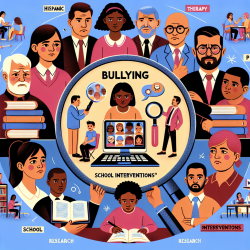Introduction
The alarming rise in suicidality among Black American youth necessitates a deeper understanding of the protective and risk factors that influence these behaviors. The research article titled Suicidal ideations and Attempts Within the Family Context: The Role of Parent Support, Bonding, and Peer Experiences with Suicidal Behaviors offers critical insights into how family and peer dynamics impact suicidal ideation and attempts among Black youth. This blog aims to help practitioners enhance their skills by integrating these findings into their practice.
Key Findings from the Research
The study utilized data from the National Longitudinal Study of Adolescents to Adult Health, focusing on Black adolescents. The results highlighted several critical points:
- Parental support is significantly associated with suicidal ideation and attempts. A decrease in parental support increases the likelihood of suicidal ideation by 41% and attempts by 68%.
- Positive parent-child relationships reduce the risk of suicidal behaviors.
- Peer influence, particularly having friends who have attempted suicide, significantly increases the risk of suicidal ideation and attempts.
Implications for Practitioners
Practitioners working with Black youth can leverage these findings to enhance their interventions:
- Family Engagement: Encourage and facilitate family involvement in therapeutic processes. Educate parents on the importance of providing emotional support and maintaining open lines of communication with their children.
- Peer Influence Awareness: Assess the peer relationships of youth clients. Encourage positive peer interactions and provide guidance on managing relationships with peers who may have suicidal behaviors.
- Tailored Interventions: Develop culturally sensitive interventions that consider the unique family and peer dynamics of Black youth. Incorporate elements that strengthen family bonds and peer support networks.
Encouraging Further Research
While this study provides valuable insights, it also highlights the need for further research in several areas:
- Longitudinal studies to establish causal relationships between family dynamics and suicidal behaviors.
- Exploration of gender-specific differences in suicidal behaviors among Black youth.
- Development of new measures for assessing depression and suicidal ideation that are culturally relevant for Black youth.
Conclusion
Understanding the role of family and peer dynamics in suicidal behaviors among Black youth is crucial for developing effective interventions. By integrating the findings from this research into practice, practitioners can better support Black youth and their families, ultimately contributing to reduced rates of suicidal ideation and attempts.
To read the original research paper, please follow this link: Suicidal ideations and Attempts Within the Family Context: The Role of Parent Support, Bonding, and Peer Experiences with Suicidal Behaviors.










